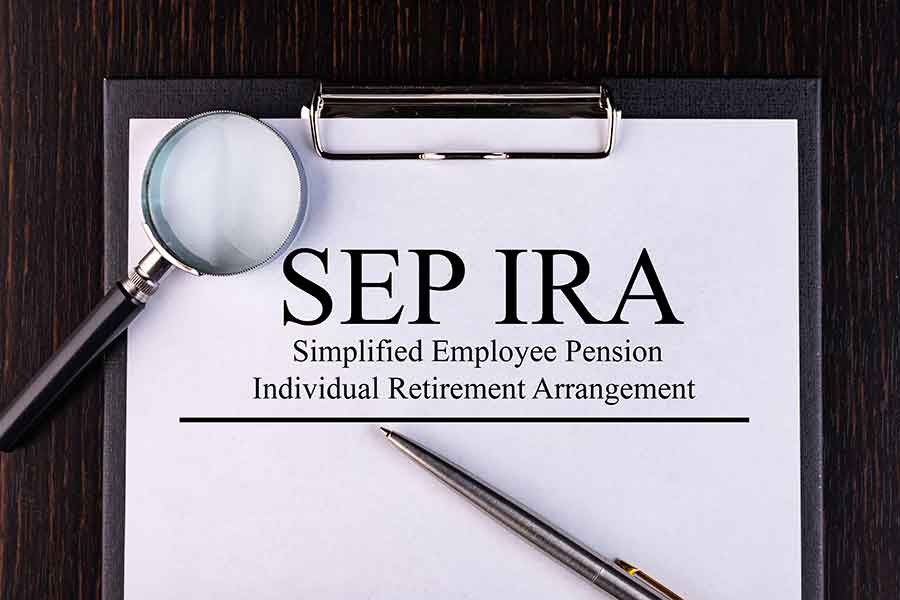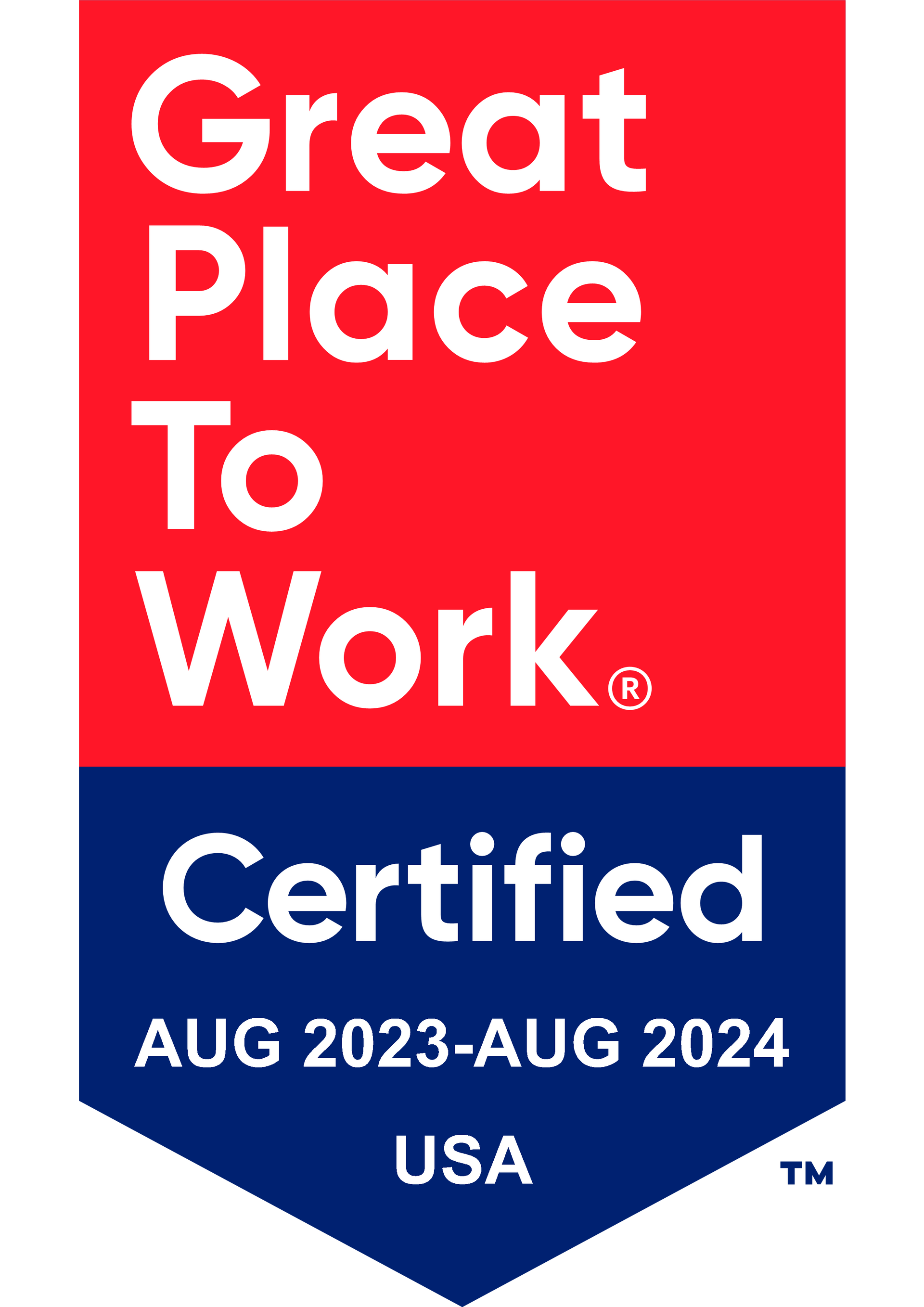Get in touch
408-366-8880
mymail@mailservice.com

SEP IRA Benefits: An Overview of Employee Contribution
Retirement planning is an essential part of one’s livelihood. However, determining the right retirement plan for a business or individual isn’t always easy. There are many options available to meet the specific needs and requirements of employers and individuals. Included among retirement plan options are the traditional, Roth, and SEP IRA.
A Simplified Employee Pension Individual Retirement Account (SEP IRA) is a retirement plan in the form of a traditional IRA available to employers, including small business owners and self-employed individuals. Simplified, a SEP IRA is a tax-advantaged retirement plan that works best for small business owners with few to no employees and self-employed individuals who desire to put money away for their future.
In this blog post, we explore the basic elements of and answer common questions associated with a SEP IRA.
HOW DOES A SEP IRA WORK?
A SEP IRA operates similarly to a traditional IRA. The main difference is that it is designed more for small business owners and self-employed individuals. SEP IRA employee contributions are tax-deductible. Contributions invested grow tax-deferred. At retirement, the contributions are taxed as income.
WHO IS ELIGIBLE TO PARTICIPATE IN A SEP IRA?
Any employer, including self-employed individuals and small business owners, is eligible to open and set up a SEP IRA. However, a SEP IRA works best for small business owners who have few or no employees. Why? Because the amount business owners contribute for themselves must also be contributed to their employees’ accounts. In other words, if a business owner wants to contribute 10 percent of his compensation to his SEP IRA account, he must also contribute 10 percent to all eligible employees’ SEP IRA accounts as a percentage of compensation.
Eligible employees are those who:
- Are 21 or older.
- Have been employed by the business for three of the last five years.
- Have earned at least $600 working for the business in the last year.
WHAT ARE THE TAX ADVANTAGES OF A SEP IRA?
Contributions made to a SEP IRA are tax deductible, and investments grow tax-deferred. It is not until retirement age that the contributions are taxed as if they were income.
WHAT IS THE SEP IRA EMPLOYEE CONTRIBUTION MAXIMUM?
A big advantage of the SEP IRA is that it allows you to contribute up to $58,000 in 2021. That is nearly 10 times the amount permitted for a traditional IRA, which is $6,000 in 2021 for those under age 50 and $7,000 for those age 50 or older. Also, SEP IRA employee contributions cannot go over the lesser of:
- $58,000 in 2021
- 25 percent of compensation
For employer contributions to a SEP IRA, the limit is 25 percent, with a maximum compensation of $290,000 used to calculate the 25% in 2021.
The same limitations apply to self-employed individuals with a SEP IRA. However, when determining the maximum deductible contributions, different rules apply. IRS Publication 560 outlines the details.
HOW CAN I OPEN A SEP IRA?
Opening a SEP IRA is relatively simple. The IRS outlines the following three steps that must all be satisfied:
- Adopt a formal written agreement by signing one of the following documents:
IRS-approved prototype SEP, offered by banks, insurance companies, and other qualified financial institutions.
Individually designed SEP plan document.
IRS model SEP using Form 5305-SEO, “Simplified Employee Pension – Individual Retirement Accounts Contribution Agreement.”
- Provide each eligible employee with SEP information. If the SEP was established using Form 5305-SEP, the information provided must include a copy of the form, its instructions, and other information listed in the form’s instructions. Similar information must be provided if an individually designed SEP or prototype SEP were used.
- Set up a SEP IRA for each eligible employee with an insurance company, bank, or other qualified financial institution. The employee controls and owns his or her SEP IRA.
WHAT IS THE DEADLINE TO OPEN A SEP IRA FOR A GIVEN PLAN YEAR?
A SEP IRA plan can be opened for a particular plan year as late as the due date (including extensions) of the business’s income tax return due date.
CAN I CONTRIBUTE TO BOTH A SELF-EMPLOYED SEP-IRA AND AN EMPLOYER 401(K)?
Yes. If you are self-employed and also work for an employer at a second job where you are eligible to participate in a 401(k) plan, you can contribute to both your SEP IRA and the employer 401(k) plan. It is important to work with a tax advisor to ensure you are maximizing your contribution levels to both plans, so you don’t miss out on an investment and savings opportunity.
CAN I CONTRIBUTE TO A TRADITIONAL OR ROTH IRA AND A SEP IRA?
Yes. You can combine your Roth or traditional IRA with a SEP IRA. Employer contributions to a SEP IRA do not reduce the amount you can contribute to your traditional or Roth IRA. However, contributions to a SEP IRA could reduce the amount you’re able to contribute to a traditional IRA, depending on your income levels when combining your SEP IRA and traditional IRA plans.
CAN EMPLOYERS MATCH SEP IRA EMPLOYEE CONTRIBUTIONS?
As mentioned previously, employers who contribute to their own SEP IRA must contribute to each of their employees’ SEP IRAs at the same percentage of compensation. So, employers do not match contributions of a SEP IRA, but instead, make mandatory contributions based on the IRS guidelines mentioned above.
CAN I MAKE CATCH-UP EMPLOYEE CONTRIBUTIONS TO MY SEP?
No. Unlike with traditional IRAs and 401(k) accounts, it is not possible to make catch-up contributions over the age of 50 with a SEP IRA.
HOW DO I INVEST MY SEP IRA?
After your SEP IRA account is opened, you can choose from the investments offered through the institution where you opened the account or your account provider. Stocks, mutual funds, and bonds are common selections. If you opened your account at a bank, you might have more limited and lower-return options, such as CDs (Certificates of Deposits).
When selecting investment options, your age, risk tolerance level, and retirement age are considerations. Stocks are going to bring more risk with the potential for higher returns than bonds, for example. Bonds carry less risk and more stability. Generally speaking, the closer to retirement age someone is, the less risk they generally take with their investments.
ARE EARLY DISTRIBUTIONS FROM A SEP IRA TAXABLE?
Yes. Early distributions from a SEP IRA are taxable. They are also subject to a 10 percent early distribution penalty.
DO I HAVE TO TAKE DISTRIBUTIONS AT THE AGE OF 72?
Yes. Similar to 401(k)s and traditional IRAs, minimum distributions are required beginning at the age of 72.
AM I ELIGIBLE TO RECEIVE EMPLOYER CONTRIBUTIONS TO A SEP-IRA IF I’M OVER 70 ½?
Yes. Generally speaking, employees over 70 ½ can continue to contribute to SEP IRA. Also, employers must contribute to an employee’s SEP IRA if the employer is making contributions to employees’ SEP IRAs who are under that age.
DO I NEED TO MAKE UPDATES TO MY SEP IRA?
SEP IRA laws can change, and it is the responsibility of the business and self-employed individuals who have SEP IRAs to keep up with them. Your SEP IRA plan should be up-to-date based on current law. For example, if the IRS updates form 5305-SEP, then the employer or self-employed should adopt the new form at that time.
BREAKING DOWN THE PROS AND CONS OF A SEP IRA
Breaking it down, there are several pros to a SEP-IRA, including:
- Easy administration
- High contribution limits ($58,000 in 2021)
- Flexibility on not having to contribute annually to maintain the account
- Tax-deductible contributions
- Can be combined with a Roth IRA and traditional IRA
- Can contribute to a SEP IRA and a qualifying employer 401(k)
- Provides employers with a simplified process to contribute to their employees’ retirement, as well as their own
There are also some cons:
- No option to pay taxes on contributions now vs. at retirement
- Early distributions are taxable and subject to a 10 percent penalty
- No catch-up contributions permitted at age 50 or older
- Minimum distributions are required beginning at age 72
Each individual and small business is different. In many instances, a SEP IRA is a great option, especially when the other options are too costly for the self-employed and small businesses or they don’t qualify for them.
SEP IRA EMPLOYEE CONTRIBUTIONS AND RETIREMENT PLAN OPTIONS – KBI CAN HELP
Saving for retirement is crucial for workers and employees of all demographics. Unfortunately, in some instances, the choices are limited. Fortunately, options like the SEP IRA exist. The SEP IRA provides a viable option to save for retirement.
If you are self-employed or a small business owner, then a SEP IRA might be the right fit for you. If you’re in the process of deciding the best retirement plan option for your business, KBI can help. Our team has years of experience supporting businesses in securing benefit plans to meet their needs, including retirement plan options. We will work with you to determine if a SEP IRA or a different retirement plan is the best for you and your business.
Contact us today by submitting our online contact form or calling us at
408.366.8880. We look forward to working with you!
Services
Latest Thinking




